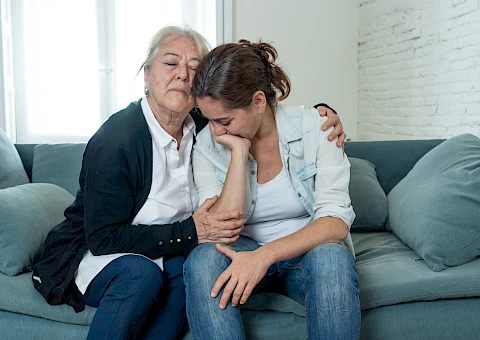
Caring for a loved one can be one of the most fulfilling roles. It involves many responsibilities, like managing daily tasks, providing emotional support, and sometimes overseeing medical care. However, it also comes with unique challenges. One of the most common emotional hurdles caregivers face is caregiver guilt. Feeling guilty for not doing enough or not taking time for oneself can weigh heavily on the heart. Addressing and managing these feelings is necessary to maintain emotional well-being while providing quality care.
Caregiver Guilt
Caregiver guilt arises from several sources. Many caregivers often feel they're not doing enough, no matter how much effort they put in. Balancing personal life with caregiving duties is challenging, leading to feelings of inadequacy. Caregivers may also experience frustration or resentment, which can further fuel the guilt. These emotions are natural, but left unchecked; they can significantly impact mental and emotional health. Guilt can lead to stress, burnout, and even depression, affecting not only the caregiver's well-being but also the quality of care they can provide.
Coping Strategies for Caregiver Guilt
The first step to overcoming guilt is facing it head-on. Acknowledging that these feelings exist is vital. It's okay to admit feeling overwhelmed or frustrated. Setting realistic expectations and boundaries is crucial. Caregivers must remember that they're only human and cannot do everything. Self-compassion and forgiveness are powerful tools. If a scheduled plan doesn't go perfectly, you need to forgive yourself and focus on the positives.
Support is another essential component of managing caregiver guilt. Reaching out to family and friends or joining support groups can provide reassurance and a sense of community. Sharing experiences with others who understand the journey can offer comfort and advice, helping caregivers feel less isolated in their struggles.
Shifting Perspectives for Better Emotional Well-being
Recognizing the tremendous value and impact of caregiving can create a healthier perspective. Every small achievement, whether it's improving a loved one's quality of life or making them smile, acts as a vital reminder of the difference being made each day. Focusing on these successes, no matter how small, helps to counterbalance feelings of guilt.
Embracing self-care is essential for maintaining emotional well-being. Time spent looking after oneself is not selfish but an investment in being a more effective caregiver. Seeking professional help or respite care shouldn't be seen as a weakness. Using available resources, including those from professionals, helps ensure the caregiver's long-term strength and resilience.
Senior Helpers San Diego Supports Seniors and Their Caregivers
Managing caregiver guilt is an ongoing process that requires patience and understanding. Remember, prioritizing your health is not just beneficial for you but also for those you care for. For those in San Diego, Chula Vista, Hillcrest, and Point Loma, reaching out to Senior Helpers San Diego for support and resources can be a helpful step in effectively managing caregiving responsibilities. You're not alone on this journey, and support is always available to help you navigate these challenges.